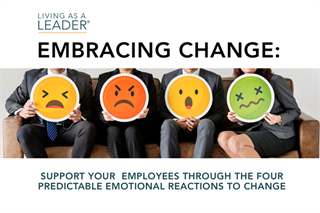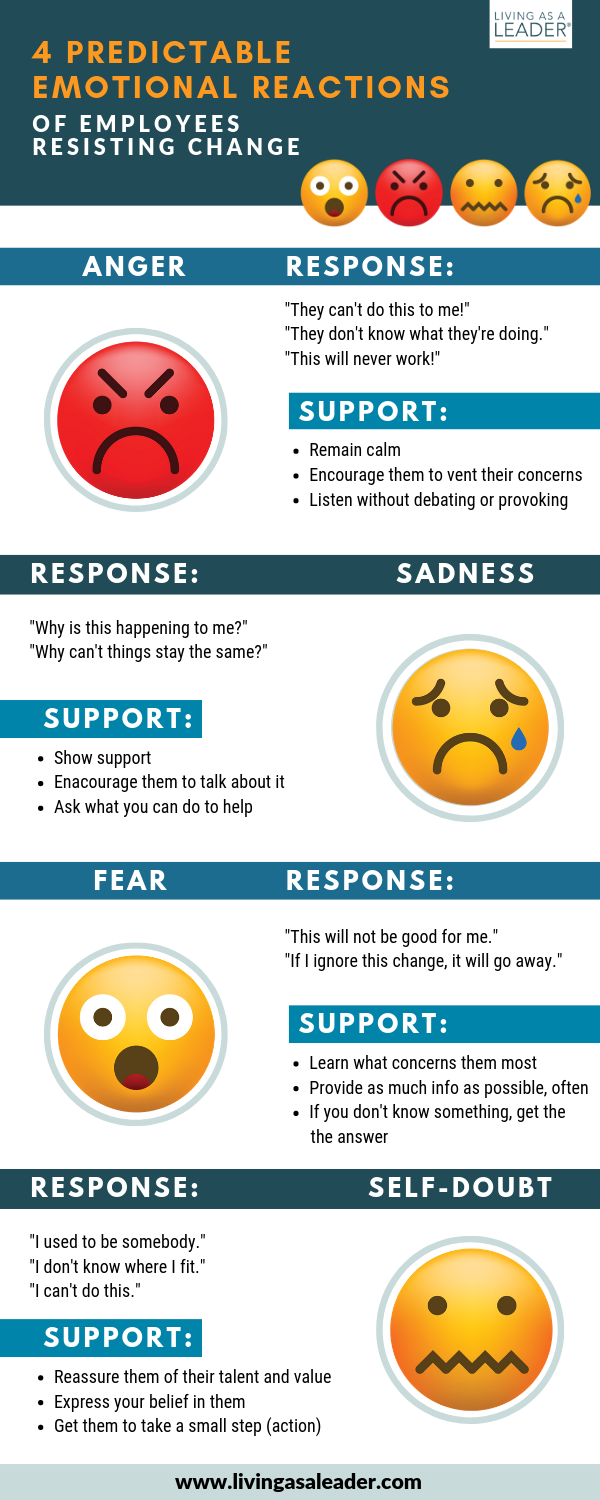 Many years ago, on what started as a typical Monday, I was summoned to the company auditorium of my employer along with a couple of hundred other managers.
Many years ago, on what started as a typical Monday, I was summoned to the company auditorium of my employer along with a couple of hundred other managers.
Little did I know, the lives of so many were about to change dramatically and unexpectedly.
The meeting began with the President and two VP’s announcing (with a great deal of fanfare) that the company was going from two businesses to one. In 3-6 months, they would be eliminating several jobs due to redundancy and there would be a combination of mandatory and voluntary layoffs.
The President and VP’s stated how great this was for the future of the company. Their smiles indicated that they expected everyone to share the same positivity, joy and acceptance from the moment they walked out the door of the meeting.
As we all sat stunned and silent, the President said “oh and one more thing, I am pleased to share that Bob and Jim (the two VP’s at the front of the room with him) have been promoted from VP to EVP so let’s give them a round of applause!”
Unfortunately, scenarios like the one described above are not uncommon in organizations.
Did you know that only 1/3 of change efforts are clear successes, 16% show mixed results and half are clear failures? www.gartner.com/en/insights/change-management.
Your company can have the best, most necessary change initiative in the world, yet if the people who need to implement the change aren’t on board, how can it succeed?
Helping employees embrace change
Over the last 20+ years in our work in supporting leaders, we’ve seen how important it is for them to be better at helping employees understand, accept, support and embrace change.
At Living As A Leader we teach two models of change, The Rational Change Model and The Emotional Change Model.
The Rational Change Model represents the predictable evolution that organizations must go through to survive and thrive over time in response to changing marketplace and economic conditions.
- It illustrates from a rational, objective perspective, that change is necessary for organizations to survive and thrive!
- Organizations predictably hit a stage in their evolution where they must reinvent. They must change.
The Emotional Change Model illustrates that as change takes place in organizations, people go through an emotional process.
The Emotional Change Model shows the impact of change on employees at all levels within an organization. This model introduces three stages in terms of predictable, emotional reactions to change.
- Endings Stage - Upon initial introduction of a change, people typically victimized, shocked, sad, angry and a sense of loss.
- Transitions Stage - people feel uncertain and confused and need information.
- Beginnings Stage – people start to embrace and feel accepting of the change.
As a leader, you must know how to communicate with people in each stage to ultimately get them to move forward toward acceptance.
- A person in Endings needs supportive communication
- A person in Transitions needs informational communication
- A person in Beginnings needs inspirational communication
So, let’s revisit the experience I described. There were so many things that made this change announcement an epic fail. At the heart of it though, was that the leaders used the wrong type of communication.
The leaders of the change were communicating with excitement and a “you rah rah” approach at a time when they needed to show support for those of us who felt victimized, lost, shocked and angry.
That misstep set the stage for the failure!
Four Predictable Reactions to Change
Let’s look at four predictable reactions to change and how you can support those who are having those reactions.

Back to the story once more. If the leaders who announced the change would have addressed these four different emotional reactions then or as the implementation continued, they would have had a completely different result – success instead of failure!
At LAAL, we have a workshop titled Support Yourself and Others Through Change that does a deep dive into this topic and provides a Coaching Through Change Planner to help you communicate and support those you lead!
At Living As A Leader, we offer a Leadership Development Series designed to produce leaders that can positively shape the cultural environment, reduce turnover and achieve crucial business initiatives. We do this by providing training, coaching and consulting with a focus on pragmatic communication tools for leaders at all levels of your organization.
For more information, check out our on-demand webinar or contact Steph Kotlarek at skotlarek@livingasaleader.com